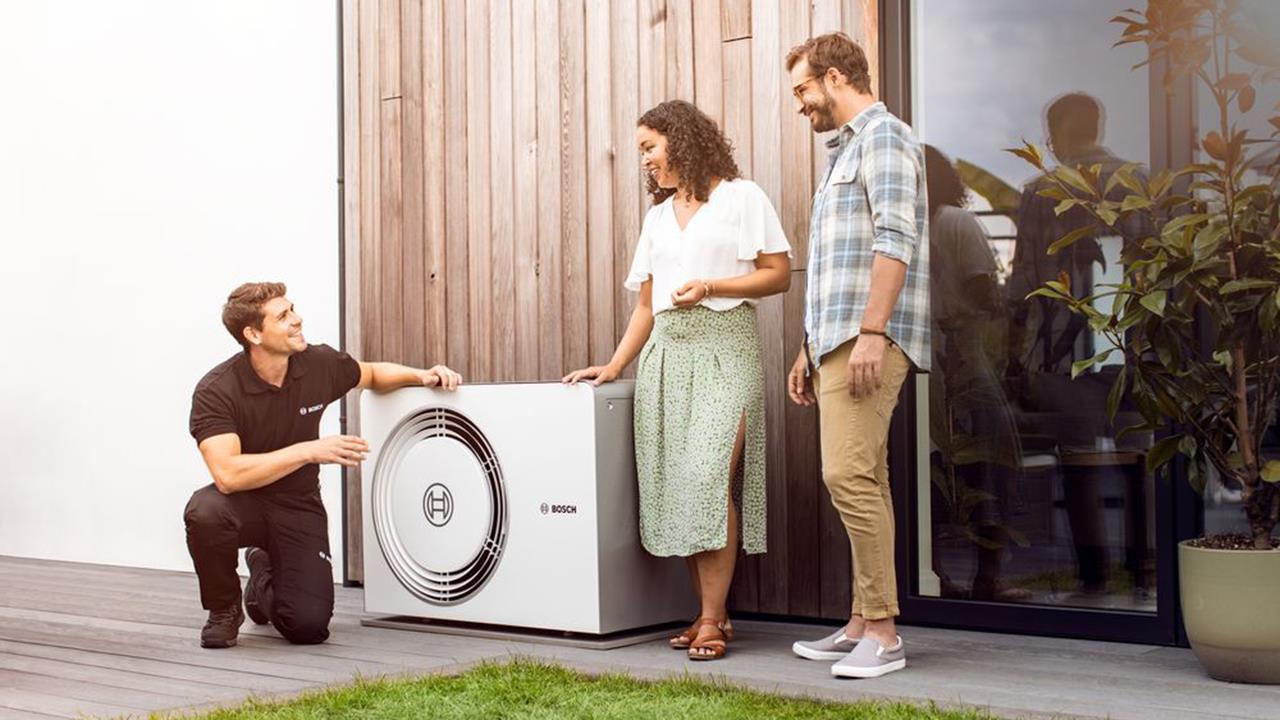

The UK is lagging behind its heat pump ambitions, with around 65,000 sold in 2023 against a target of 600,000 annually by 2028, less than four years away! To meet climate change goals, the government must increase the demand for more heat pump purchases – and one of the key vehicles for this is the Boiler Upgrade Scheme (BUS).
The scheme offers households a £7,500 grant towards the cost of heat pump installation. But there’s not been enough uptake.
Following a consultation period, the government has published a summary of changes to the scheme’s regulations to make heat pumps cheaper and easier to install, hoping to encourage higher rates of adoption. Here’s my take on some of the most notable proposed amendments:
Differentiation of grant levels
Albeit slightly vague at the moment, new differentiating categories will be introduced for properties off the gas-grid and the replacement of specified fuel types such as coal, oil and liquefied petroleum gas.
This is because these properties tend to be more complex to decarbonise than gas grid properties, and the incurred costs may be higher when replacing high-carbon fuels.
There has also been criticism over how eligible new builds (self builds) can claim the BUS grant. Most people feel that the grant is intended to encourage the removal of existing gas or oil-fired boilers for replacement with a low-carbon heat pump, rather than fund pumps for new builds.
With the Future Homes Standard (FHS) planned for introduction in 2025, the government suggests that new supply chains will reduce heat pump installation costs. As a result, they intend to introduce a differentiated category in the regulations for eligible new builds, with the option to reduce or remove support under the BUS once the FHS is implemented.
Relaxed eligibility requirements
Probably the most controversial amendment is the relaxation of insulation requirements. To explain, one of the requirements for obtaining the grant is to have an up-to-date Energy Performance Certificate (EPC) generated in the last 10 years. Previously, if an EPC had outstanding measures for loft or cavity wall insulation to be installed, the grant was not awarded until these conditions were met.
Under the government’s new proposal, loft and cavity wall insulation will no longer impact whether the grant is awarded, in the hope that this will widen the pool of eligible households.
Hopefully, this amendment will come with the caveat that the insulation must be installed sometime in future. Yet, as it’s no longer a requirement, the danger is that owners will put it off and run their part-funded heat pump in an inefficient property – in turn, losing heat and using more electricity than expected.
Hybrid omission and changes to funding
One of the biggest disappointments for us is that hybrid technology is still going unrecognised by the BUS. The government sees high-temperature heat pumps as the alternative solution to low-temperature heat pumps, rather than the inclusion of a hybrid.
But, we believe – like most of mainland Europe – that hybrid systems could help households transition from traditional boiler systems to lower carbon alternatives.
The government also announced how the original £1.5 billion of additional funding would be split between the financial years from 2025 to 2028. While we previously believed that BUS funding would be equally divided between each year, this doesn’t seem to be the case. For example, the budget has now been set at £295 million for the 2025 to 2026 period.
So, with a grant of £7,500 for a heat pump, it looks like the government will fund just under 40,000 installations in the period – whereas the Clean Heat Market Mechanism (CHMM) proposal was for 90,000. This 50,000 deficit of funded heat pumps will almost certainly result in installation targets being missed.
The future of green heating
Adjusted regulations and a wider eligibility pool could marginally improve BUS uptake, but it may come at the cost of energy efficiency – which was the very reason for the scheme to begin with.
If the government really wants consumers to make the move to greener heating, they need to promote not just the BUS, but the wider benefits of investing in low-carbon heating technologies. The demand just won’t be there until further incentives are introduced to benefit heat pump users, such as council tax reductions.
Until then, a lower barrier to entry might convince a few homeowners on the fence about transitioning to a heat pump – but it probably won’t achieve the government’s pipe dreams for clean heating. To reach installation targets by 2028, it’s clear that more needs to be done to increase uptake – and fast.
If you'd like to keep up-to-date with the latest developments in the heating and plumbing industry, why not subscribe to our weekly newsletters? Just click the button below and you can ensure all the latest industry news and new product information lands in your inbox every week.